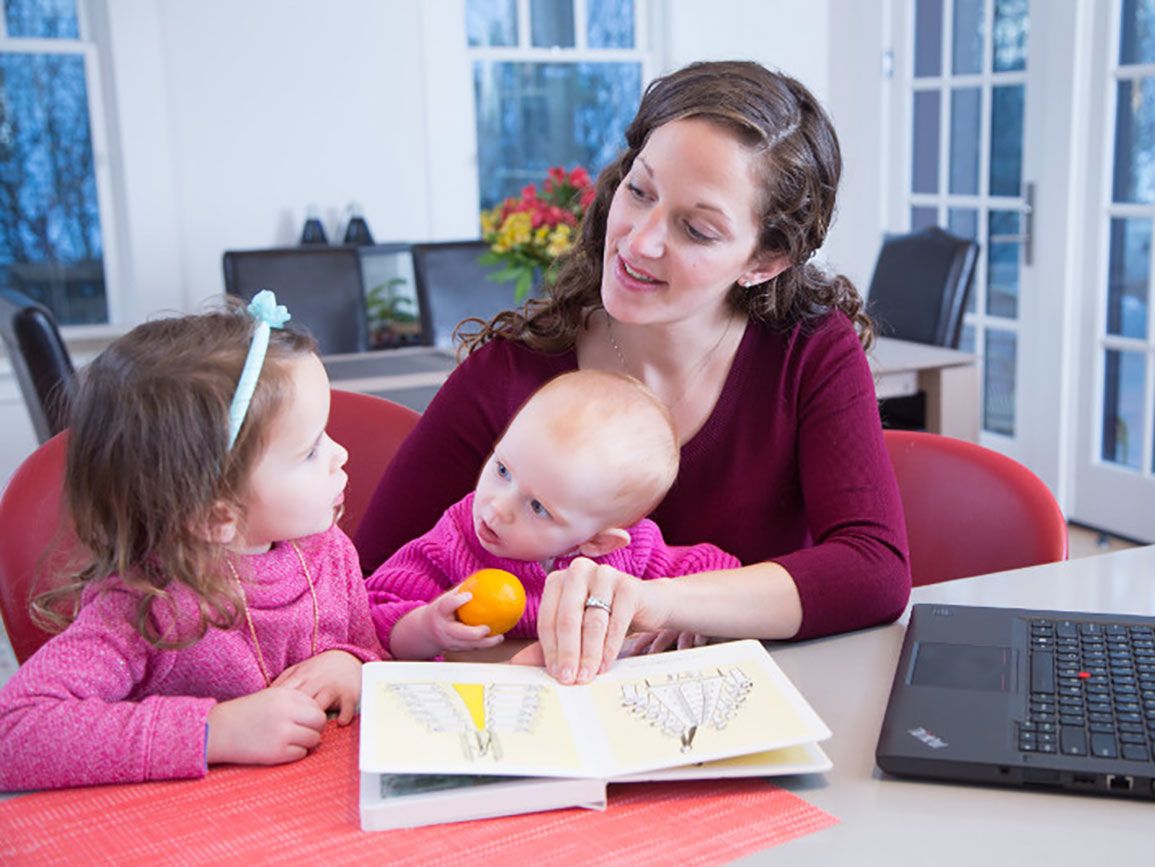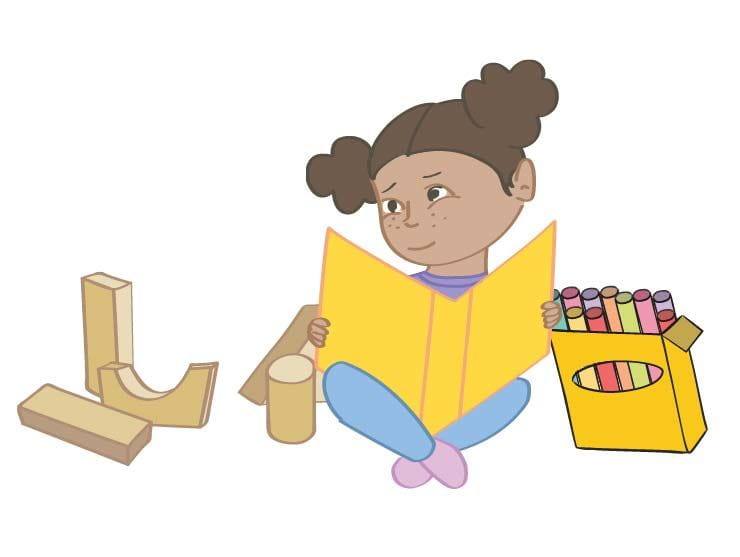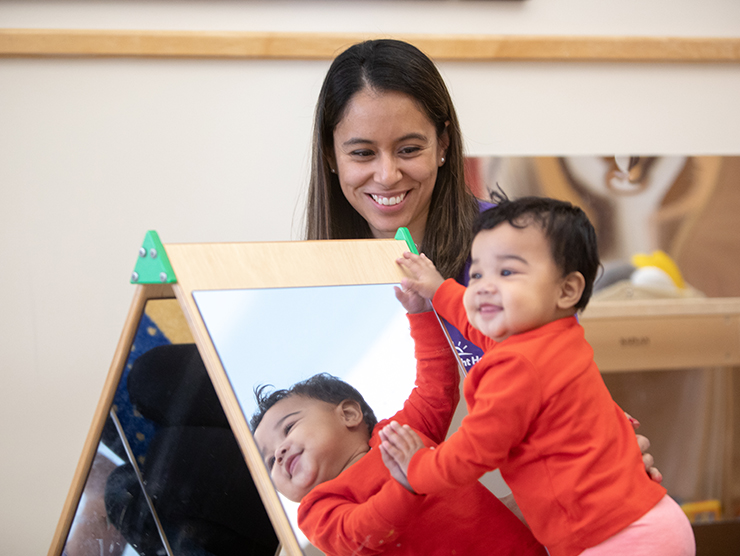Children are naturally curious about how the world works, which means they ask a lot of questions. Some questions are easier to answer than others, and there’s no one right way to respond. Consider your child’s temperament and developmental level, as well as your family’s values on a given topic.
Below are a few general suggestions for tackling those tricky questions that make every parent squirm:
- Ask clarifying questions to understand exactly what your child is asking.
- Offer a simple, straightforward answers.
- Be honest—it’s okay to admit you feel uncomfortable or don’t know exactly how to respond.
- Be available for follow-up.
Kids’ Questions about Anatomy and Sex
Questions about anatomy and sex can be a challenge, depending on the age of your children and your comfort level with discussing these topics.
Q: “Why doesn’t my sister’s/brother’s body look like mine?”
A: Most child educators and safety experts agree it’s a good idea to use the correct terms for body parts when you explain to your child about differences in body parts. Especially when your children are young, you can explain “private parts” and what body privacy means: that nobody else should touch them. This is also a good time to let your child know that they should come to you or another trusted adult if anyone does try to touch their bodies.
Q: “Where do babies come from? How did the baby get in your belly?”
A: In a perfect world, talking about sex with our children would be just another topic, like hygiene, math, or sports. We don’t live in a perfect world, however, so conversations about sex can cause a lot of discomfort and anxiety—mostly for the parents. Take a deep breath, and follow these simple tips.
- Ask your child “What do you think?” before answering questions to get a better sense of what is really being asked and what’s likely to be understood. It always helps to understand your child’s questions and current thinking before trying to educate them.
- Tell the truth. If you make up a story about storks or fairies, it will only cause confusion and mistrust later on.
- Avoid too much detail and keep answers short and simple. If your child is not satisfied with your answers, more questions will follow.
- Make conversations matter-of-fact. When discussing body functions and sex your child, treat the conversations as you would any other important topic—calmly, and matter-of-factly. Children are perceptive, and they will be able to tell if you’re uncomfortable.
- Be available. One of the best rules of parenting is to spend relaxed time together and have lots of conversations. Let your child know in words and actions that you are available to offer information and answer questions about sex or anything else.
- Defer when appropriate. If a question about sex comes up in the doctor’s office or in the line at the bank, don’t be afraid to say, “What a good question! Let’s talk about that at home later.” Then, bring it up again at home so your child knows you aren’t avoiding the conversation.
How to Answer Kids’ Philosophical Questions
In some ways, philosophical questions are harder to answer because they’re about existential, abstract, or unknowable topics. For example:
- What is God?
- Why do we die? What happens to us when we die? Are you going to die?
- If I’m not allowed to hurt my friends, why is it okay to kill a chicken to eat it?
- What is a war? Am I safe? Will I be attacked?
- Why do some people not have homes?
At the heart of most of these questions are the underlying questions, “Am I safe? Is the world safe?” Your background and values will determine how you answer these questions for yourself and your child, but what if you’re not sure of the answer?
- Reflect and open the discussion. Some parents may feel uncomfortable and want to either change the subject or brush the question off with a dismissive remark like: “Never mind. That’s a grown-up question.” Other parents use these tough questions as an opportunity to examine their own beliefs and, depending on the age of their children, discuss these issues as a family. Like with questions about sex, it can be helpful to ask our child, “What do you think?” Not only will it send the message that these thoughts and questions matter, it will signal you are open to discussion.
- Research and collaborate. There are endless books that cover “what do we believe?” questions. Explore the parenting section of your library or bookstore or consult like-minded parents. If you are a religious or spiritual person, you may also want to consult with your spiritual community to find information aimed at answering children’s questions about religion and the afterlife.
- Offer comfort and reassurance. Consider why your child is asking the question. Is it in pursuit of information, comfort, understanding—or all three? Has there been frightening news coverage or has a friend experienced a loss? Children generally want to know 1) why a situation has occurred, 2) what is being done to help or comfort those involved, and 3) how it might affect them. It’s okay to acknowledge that life can be unpredictable and confusing, but try to end on a comforting, solutions-oriented note. For example: “People become homeless for a lot of different reasons, such as because they’re sick or they lost their job. We donate to the homeless shelter, and we keep money in an emergency fund to help keep our family safe.”
Those tough questions your children ask can give you insight into their fears, challenges, and developmental understanding. They can also spark great conversations that build trust. Don’t worry about getting every answer right. You can revisit a topic more than once.
More on Tough Conversations with Kids
• Being confident in your parenting approach and style will help you tackle tough questions.
• Is your child feeling stressed? Help your child relieve stress with these expert tips.
• Learn how building resilience can guide your child through challenging life experiences.





